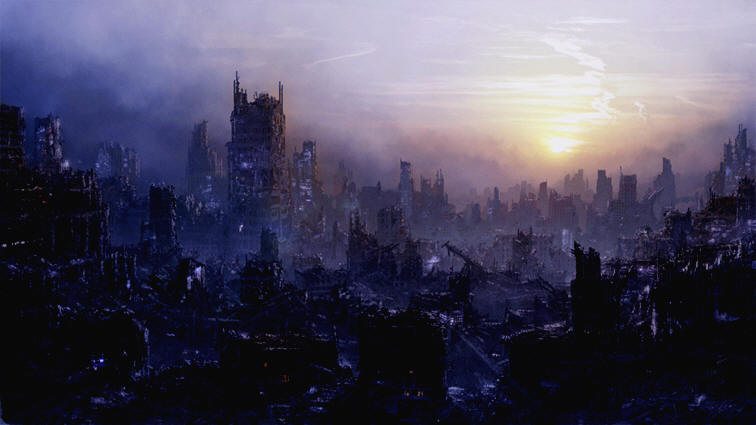
"By the Waters of Babylon," a short story by Stephen Vincent Benét
"When gods war with gods, they use weapons we do not know. It was fire falling out of the sky and a mist that poisoned. It was the time of the Great Burning and the Destruction. They ran about like ants in the streets of their city — poor gods, poor gods!"
"I knew then that they had been men, neither gods nor demons. It is a great knowledge, hard to tell and believe. They were men — they went a dark road, but they were men."

"By the Waters of Babylon" (1937) is a short story set in the future after a massive war that completely wiped out civilization. A small human population has been surviving off the basics of the land long enough to forget pre-apocalyptic life. The leaders of this society are known as Priests, and are the only humans allowed to travel to the Dead places. These Priests scavenge for metal in the Dead places, but are forbidden to travel East or enter the Place of the Gods. The young protagonist, named John, inherits his role of Priest from his father, and begins his own journey. He believes he is destined to travel East and find the Place of the Gods, despite that it is forbidden. When John finally reaches the Place, he realizes that the Gods were really only humans whose lifestyle was destroyed by great bombs. John explains to his father the importance of learning all that the dead men knew, so that they can build again. At the end of the story, the author Benét hints at the location of the future civilization: John explains to his father that the Place of the Gods is called "newyork", and there was a God named ASHING (George Washington).
Through this story, Benét warns of the catastrophic destruction of humanity with the development of harmful technology. One of the story's underlying themes seems to be the unhealthy rush for knowledge. Benét uses the character John to portray hist message of creation rather than destruction. John describes his quest for truth. "It is better the truth should come little by litte. I have learned that, being a Priest. Perhaps, in the old days, they ate knowledge too fast." Benét's warning against a hurried rush for knowledge in war came in an era before Nuclear weaponry.